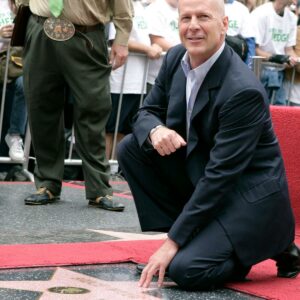Introduction: A Global and National Crisis
Homelessness and housing insecurity stand as stark reminders of inequality in our world. As of recent reports, more than 580,000 people in the United States face homelessness every night, a sobering statistic in one of the wealthiest nations on earth. The global figures are equally staggering: millions worldwide are either homeless or live in inadequate conditions, deprived of the basic human right to shelter. This crisis stems from various sources—economic inequality, lack of affordable housing, and increasingly severe natural disasters, to name a few.
As communities grapple with finding sustainable solutions, a few public figures have stepped forward, using their platform and resources to shed light on this pressing issue. Brad Pitt, known for his acclaimed acting career, has taken up the cause, focusing on rebuilding, revitalizing, and innovating in the realm of affordable housing. His work, especially through the Make It Right Foundation, shows how the power of celebrity can be used to challenge the status quo and provide hope to those affected by housing insecurity.
Brad Pitt’s Journey into Housing Charities
For Brad Pitt, his commitment to addressing the housing crisis began with one of the nation’s most devastating natural disasters: Hurricane Katrina. When the hurricane ravaged New Orleans in 2005, leaving much of the city submerged and the Lower Ninth Ward utterly decimated, Pitt saw firsthand the destructive power of natural events exacerbated by human negligence and social inequality. Motivated by a sense of responsibility and his desire to help, Pitt founded the Make It Right Foundation in 2007, marking his formal entry into housing-related charity work.
Make It Right set out to do more than just rebuild homes. It aimed to create sustainable, affordable, and resilient housing for a community that had lost nearly everything. For Pitt, this mission wasn’t just about charity; it was about redefining how society views and constructs affordable housing. From the start, he collaborated with notable architects, environmental experts, and social scientists, all sharing a vision of sustainable development and architectural innovation.
Notable Projects and Transformative Achievements
The heart of Make It Right’s work lies in the Lower Ninth Ward of New Orleans, where the foundation committed to building 150 homes. Designed by some of the world’s leading architects, each house emphasized environmentally sustainable practices, prioritizing green building techniques, energy efficiency, and innovative materials. The homes were built with solar panels, rainwater collection systems, and eco-friendly materials, embodying Pitt’s belief that low-income communities should have access to the same high standards of design and sustainability as affluent areas.
Pitt’s vision went beyond aesthetics or practicality; it was about giving back dignity and autonomy to families who had lost everything. The homes were designed to be both visually appealing and functional, with unique, modern designs that stood as symbols of hope and resilience in the Lower Ninth Ward. While the homes addressed the immediate need for housing, they also served as models of sustainable urban development, signaling a new way forward in affordable housing.
Facing Challenges: The Harsh Realities of Charity Work
Despite these successes, the Make It Right Foundation’s journey has not been without its share of setbacks and criticisms. Some homeowners reported issues with the structures, ranging from mold to foundation problems, prompting lawsuits and public scrutiny. The foundation was accused of failing to deliver on its promises, and critics questioned whether celebrity-led charities could effectively tackle such complex, deeply rooted issues.
For Pitt, these setbacks were more than just public relations challenges; they were learning experiences. He openly acknowledged these difficulties, using them as opportunities to refine and improve the foundation’s approach. The Make It Right Foundation began to prioritize more rigorous standards for materials and construction oversight, ensuring that future projects would meet higher benchmarks for safety and durability.
In the face of these challenges, Pitt’s continued dedication to the cause has been unwavering. By addressing the criticisms head-on and adapting his approach, he has demonstrated that failure, though painful, can ultimately strengthen a project’s mission. It’s a lesson in humility and resilience—qualities essential for any endeavor seeking lasting social change.
The Ripple Effect: How Brad Pitt’s Work Inspires Others
Beyond the tangible results in New Orleans, Pitt’s work has had an intangible yet powerful impact on public awareness and the broader housing movement. His efforts have shone a spotlight on sustainable housing, inspiring others to view affordable housing as a crucial component of environmental responsibility. The idea that quality, eco-friendly homes should be accessible to all, not just the wealthy, has taken root in the public consciousness, partly due to the example set by Make It Right.
Pitt’s work has also influenced his Hollywood peers, spurring a growing wave of celebrity involvement in housing charities and social causes. High-profile figures are increasingly leveraging their platforms to address issues like homelessness and affordable housing. With Pitt as a pioneer, this trend signals a new role for celebrities in social advocacy—one that goes beyond donations and appearances to include hands-on involvement and personal accountability.
Conclusion: A Call to Action
The housing crisis isn’t an issue that any one individual, foundation, or community can solve alone. Yet, as Brad Pitt’s journey with Make It Right shows, meaningful change begins with dedicated efforts, accountability, and a willingness to innovate. Housing is not a luxury—it is a human right, and society must recognize this if we are to address the crisis effectively.
As we reflect on the lessons from Pitt’s work, we are reminded of the importance of supporting organizations that strive to provide safe, affordable, and sustainable housing to all. Whether through donations, volunteer efforts, or simply by raising awareness, everyone has a role to play in this battle against housing insecurity.
Brad Pitt’s commitment to housing charities underscores the difference that one person’s dedication can make. His journey isn’t a perfect one, but it’s a testament to resilience, vision, and the enduring belief that change is possible. In the spirit of that belief, let us all find ways to contribute, support, and stand up for the right to housing—a cornerstone of dignity, security, and hope.





